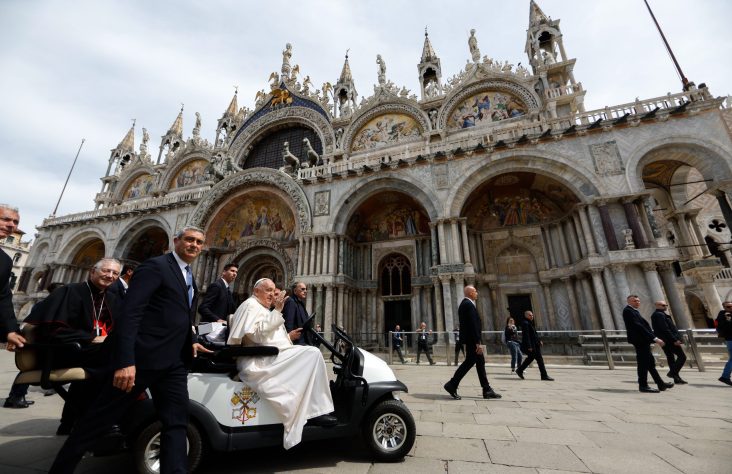February 21, 2012 // Uncategorized
Concentrate on God during Lent
1st Sunday in Lent
Mk 1:12-15
The Book of Genesis provides the first biblical reading for this first Sunday of Lent.
The first rule to remember in reading Genesis is that it is a religious book, and it was designed to be a religious book. It is to teach us about God.
This weekend’s story is familiar. It is about the great flood, and about Noah. Not read in this reading, but essential to understanding this passage and indeed the entire narrative, is the fact that sin and human wickedness drastically disordered creation. Sin brought death, from a force as powerful as a flood.
God, however, did not leave the people, or creation itself, hopelessly doomed in the face of this flood. God instructed Noah, telling Noah how to survive by taking his own family into a specially constructed vessel, and also to take partners of all living creatures. These partners were to be male and female, so that they could reproduce.
(An important message here is that in all these processes of reproduction, parenting figures are instruments of God’s might creative power.)
Noah obeys. The world lives.
The second reading is from the First Epistle of Peter. The Church always has highly venerated this Epistle, and its companion, as somehow expressing the teaching of Peter, the chief of the Apostles.
The reading this weekend is rich in its message and in its symbolism. First, it proclaims Christ as Savior. He died to reconcile humankind with God. He died in the wake of human sin. Just as God saved creation and humanity through Noah, God saves humanity through Jesus.
Then, the reading compares the flood to baptism. All aboard the ark, humans and animals, kept their lives. Through them, earthly life endured.
The genuinely holy endure the waters of Baptism. Indeed, in Baptism, they attain everlasting life. The Church will refer to this symbolic link between Noah and Christ, between flood and Baptism, during its splendid Holy Saturday Easter Vigil liturgy.
St. Mark’s Gospel is the source of the third reading. It is brief, but its message is stark and direct. John has been arrested. The last of the great prophets preceding Jesus has been silenced.
All was not lost, however. Jesus went into the desert, presumably the Judean desert located between Jerusalem and the Jordan River, to pray for a long period of time. Then, Jesus emerged from this solitude and went to Galilee to call people to repentance and to belief in the Gospel. Redemption had come!
Reflection
The readings offer us a contrast, death or life. Baptism is essential to this story of contrast.
Across the country, many people at this time are in the final stages of preparation for Baptism. At the Easter Vigil, they will be baptized, becoming members of the Church. In this union with the Church will be their union with Jesus, the Son of God, the Messiah so eloquently described in First Peter.
Also very much included are believers already baptized. At the Vigil, they will repeat original baptismal promises. They will renew the pledges spoken perhaps long ago.
The Church calls us all to the waters of Baptism, there not to die, but rather to rise from them to true life.
This weekend, the Church begins Lent in earnest. Lent prepares us for Holy Saturday.
If we authentically restate our baptismal promises, we must forsake everything and humbly turn to God. We must concentrate on God, as Jesus turned to God and God alone in the desert.
All sinners, we must repent. Among the contemporaries of Jesus, repentance had a very demanding meaning. This meaning summonses us. It is the absolute and total change of mind, heart and soul, so that we offer everything in our very being to God. Nothing less is sufficient.
The best news. Delivered to your inbox.
Subscribe to our mailing list today.





